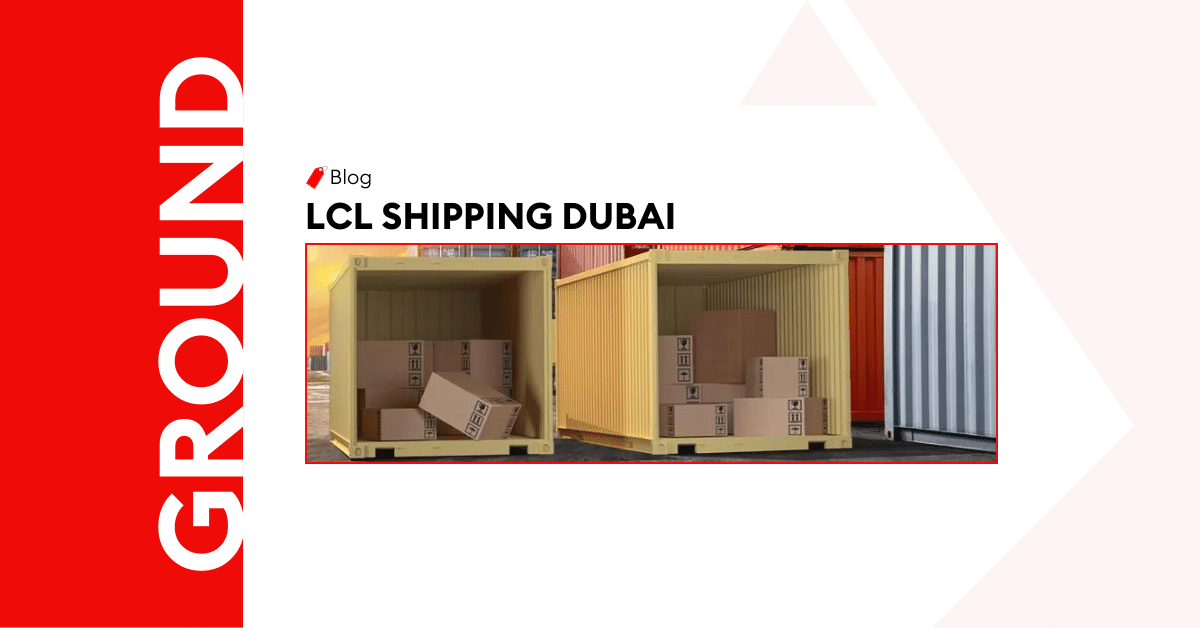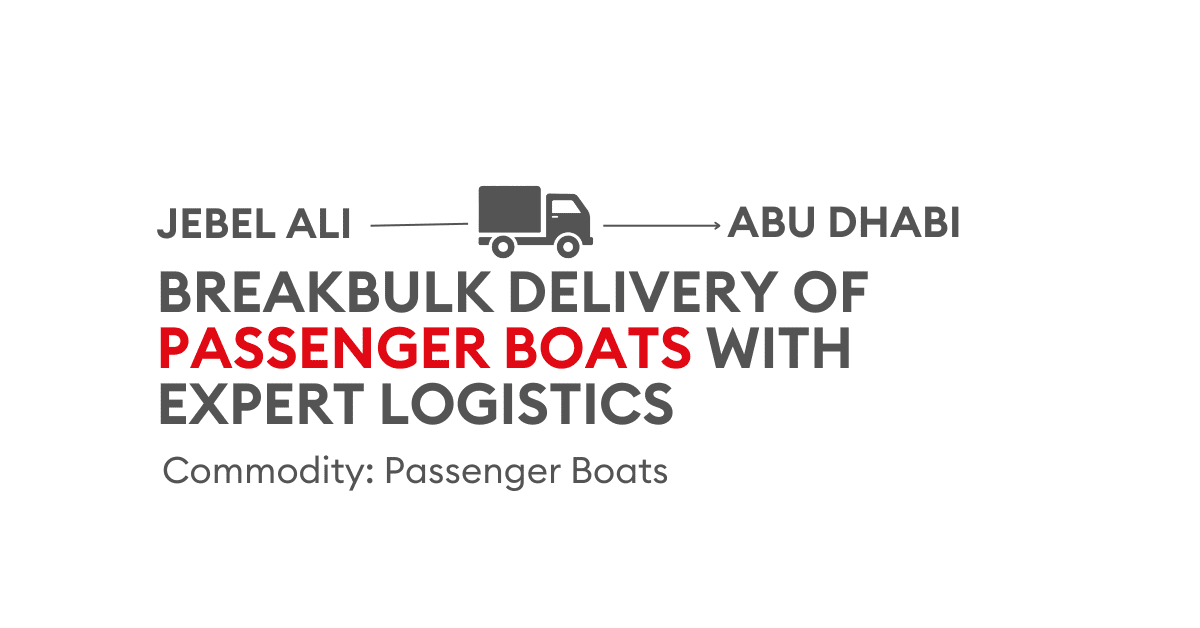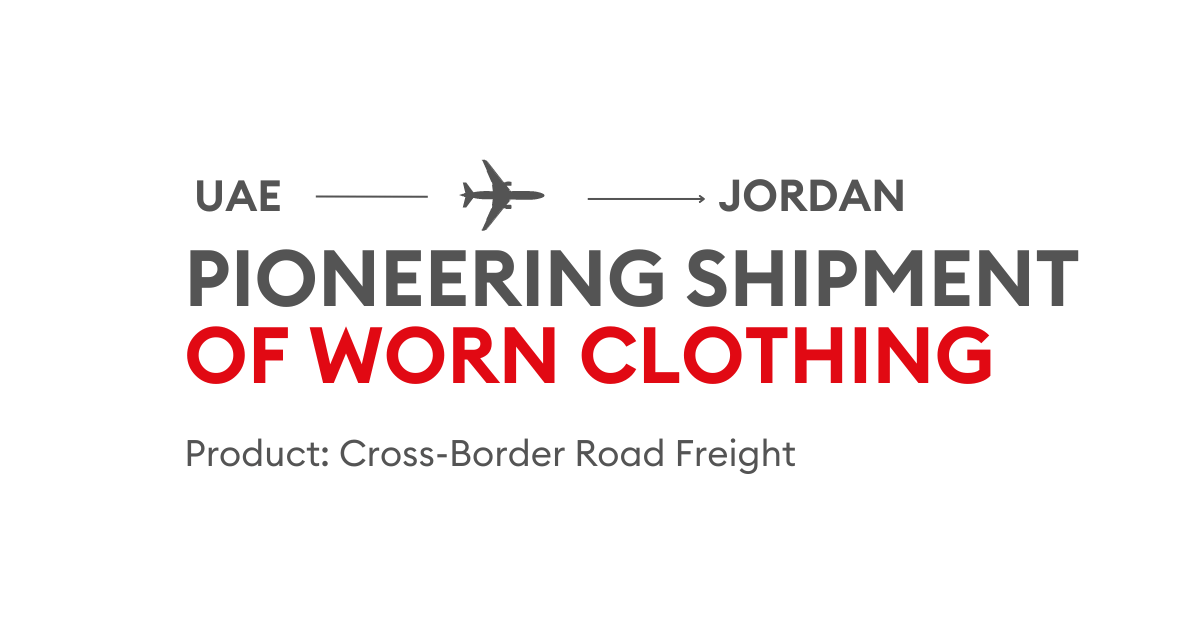
LCL | A Shipping Solution for Today’s Global Logistics Market
LCL stands for “Less than Container Load”. This is a shipping system in ocean freight that is used for shipments that are not up to a full container load, i.e a 20 or 40 feet container. As a result, the cargo is shipped in a container shared with other shipments of similar volume. This shipping system is usually used for shipping light to moderate volume of goods and is also known as groupage or grouped shipment. In contrast, it is different from FCL which stands for “Full Container Load.”
In today’s rapidly changing supply chain landscape, it has become increasingly challenging to deliver goods and shipments from one point to another. Shippers face various problems such as high cost of shipments, warehouse issues, security of goods, etc. However, a good shipping option can easily take out most of these challenges. In this article, we will be guiding you in making the best choice for your shipment options.
As we dive deeper, we will be looking at the following areas
- A deeper dive into LCL: What it means
- Worrying issues in today’s market
- How LCL affects the global logistics market: An effective solution
Let us now look at these points one after the other, throwing more light on them
A deeper dive into LCL: What it means
As already mentioned earlier, LCL stands for Less than Container Load and is a shipping method used by importers and exporters in the shipment of cargoes, not up to a full container load. Imagine having to ship a certain amount of cargo not up to half the volume of a full container from point A to point B and having to pay for a full container. The cost implication will be on the high side.
This is not something any expediter wants to accommodate, since the goal is to always keep cost minimal. As such, LCL is best for importers or exporters who seek to ship smaller volumes of goods frequently to cut warehouse costs. This system of ocean freight is best adapted to this category of shippers because it is more cost-effective and allows small quantities of goods to be shipped frequently.
Importers and exporters who do not have enough capital to finance the shipment of a full container load can resort to this method of shipment. Especially when the goods are not time-sensitive, since the goods can stay for long periods on the sea compared to air freight that is costlier but much faster. Also, shipping using LCL often puts the goods at the risk of getting lost or damaged as a result of breaking bulk, i.e deconsolidation of the constituent shipments. Therefore, this method is also advised for importers and exporters who do not deal in fragile goods like TV sets or glassware.
Worrying issues in today’s market
With the changing dynamics of today’s world, the supply chain section is not left out. The supply chain of various companies, industries, and businesses face different challenges in the course of their duty, whether the importation of raw materials or exportation of finished goods. In this section, we will look at some of the challenges faced.
Container shortages
In recent times, there has been a shortage of containers in ports. This can be attributed to some reasons as stated below
Slow recovery from the covid-19 effect
Due to the covid-19 pandemic, there have been various restrictions in countries on the people and production. This has led to a reduction of the workforce in the ports and a subsequent increase in the time taken to load and offload cargo from containers. As such, the containers spend more time in the ports, leading to congestion in the ports and subsequently, the unavailability of the containers.
Increase in demand
The covid-19 pandemic also led to an increase in demand for goods and services, with countries looking to bounce back from the covid-19 effect. As a result, there is also an increase in commercial activities in various countries, thus leading to a scarcity in the availability of containers for use.
Warehousing space and cost
Companies and businesses usually face the problem of not being able to ship out goods frequently. This results in the goods being packed up in their warehouses. Consequently, there is a shortage of warehouse space, and they might even have to pay extra costs for additional warehouses. This cost also increases as the goods stay for longer periods in the warehouse.
Consumer’s unending thirst
Suppliers are usually faced with a high demand for goods, and this gets higher in peak seasons, such as the Christmas season. Suppliers need to constantly satisfy the needs of consumers. But it seems the supply chain is not able to meet the ever-increasing demand of the consumers.
Airfreight has proven to be a faster alternative for the shipment of smaller volumes of goods. However, this system has also proven to be less cost-effective, especially when shipping is to be done frequently.
How LCL Affects the Global Logistics Market? - An Effective Solution
A popular logistic director, Clifford said, “LCL has increased because companies are reluctant to buy in volumes”. With the high cost of renting a warehouse, supply chain managers now seek to ship goods in small quantities, according to consumers’ demands. This shipping method is called ‘warehouse in water’ and is facilitated by modern technology that helps supply chain managers predict consumers’ demand.
Although ships have been known to be a generally slower means of shipping, some freight companies offer expedited LCL. This means that the shipments can arrive almost the same time it would take an air freight to arrive while remaining cheaper. This is confirmed by the words of Greg Howards, a global CEO who said, “LCL shipment from Europe to East Coast will arrive in as few as 8days.”
Why You Should Consider LCL?
In addition to LCL being used by some top guns as seen above, this shipping method also has a few other benefits that make it a better shipping option as we will see below:
Cost-effectiveness
There are a few areas where costs can pile up in the supply chain manager. Some of these include the cost of warehousing and that of shipping goods. LCL helps solve this problem for you by providing an alternative to stockpiling goods in the warehouse. You can now order small amounts of goods frequently using LCL, thereby cutting or reducing the cost of freight movement and warehousing for the organization.
Also, LCL provides a much better alternative for shipping small amounts of goods with the more costly air freight counterpart as a mode. Shipments can now be made using the expedited LCL that is almost as fast as the air freight while remaining cheaper. Also, LCL is charged per cubic meter or tons and proves to be more cost-effective than FCL for shipments less than 13 cubic meters.
Solution for peak seasons
Many supply chain managers are not able to keep up with the increased consumer demands during peak seasons, thereby causing companies and businesses to lose out on the sales that could have been made during the period. This can be attributed to the unavailability of the FCL shipping option.
Again, LCL is readily available in peak seasons, thereby providing you with a solution to this problem. The availability of LCL during peak seasons can help you to meet consumer demand.
Inventory space
The presence of large amounts of goods in the warehouse can sometimes lead to warehouse congestion. This can be a big issue for the supply chain manager. Therefore, companies tend to purchase inventories in smaller amounts to avoid the congestion of warehouses. LCL helps to achieve this by providing a means to frequently ship small amounts of goods.
Al Sharqi - Offering LCL Freight Forwarding
Al Sharqi has been one of the leading names in the logistics industry for over 30 years now. We offer LCL freight forwarding services for customers who wants to ship their cargo through ocean.
Economical Shipping
This versatile shipping option can move the cargo in form of single parcel to big consignment in the most economical manner, since you only pay for what you ship.
Delivering to Customers
For our LCL shipping, we offer door to door, port to port, port to door, and door to destination service.
Our customer service team is happy to assist you with planing your next booking.

Related Articles
Seamless Passenger Boat Delivery from Jebel Ali to Abu Dhabi | A Case Study
Precision Handling for High-Value Cargo Summary Handling oversized and high-value cargo, such as pas
Defense Solution by Al Sharqi Ground Transportation | A Case Study
Driving Excellence Across Borders Summary Al Sharqi Ground Transport was tasked to deliver 45 movabl
Navigating the Saif Zone to Jordan Logistics Corridor | A Case Study
From UAE to Jordan on the Road of Innovation Summary This case study explores the logistical challen







Post a comment
You must be logged in to post a comment.